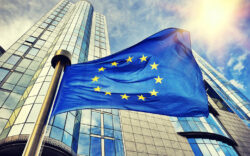- Russia has successfully evaded Western sanctions
- Other countries are now willing to openly oppose the West
- Ukraine and Israel are symptoms of a bigger trend
Now that Russia has been deposed from the top of the geopolitical news cycle, it’s time for us to pick up the pieces again to see what’s going on behind the news screens covering Israel.
Do you remember when President Biden declared the Russian ruble had been reduced to rubble on the back of his sanctions? Well, it has been doing just fine since.
What about the sanctions themselves? Have they worked?
It certainly doesn’t seem so, outside of tennis anyway. The International Monetary Fund (IMF) recently upgraded its forecast for Russia’s GDP growth to 2.2% for 2023 – enough to make the rest of the G7 jealous. Interfax made me laugh with this Brexit-esque summary:
The IMF said in its April World Economic Outlook that it thought the Russian economy would grow 0.7% in 2023. It said in January that it might grow just 0.3% and in October last year that might fall 2.3%
In fact, depending on how you do the maths, Russia recently leapfrogged Germany to become the fifth-biggest economy in the world. That’s on a purchasing power-parity basis, meaning adjusted for the cost of living. Speaking of which, after a double-digit burst in 2022, even inflation in Russia was preferable to that in Europe…
The Financial Times reports, “Russia has succeeded in avoiding G7 sanctions on most of its oil exports.” What makes this especially interesting is who has been helping them.
A suspicious amount of fuel imports has been flowing via India into Europe since the sanctions on Russia which India avoided imposing. Greece’s shipping industry has been making it rather easy for Russian oil to find its way to the world market too.
A long and growing list of countries are finding alternative ways to transact financially with Russia in both bi-lateral deals that avoid the US dollar and potentially in proper international payment mechanisms designed to compete with the US-controlled SWIFT.
And so, while some of the oil sales really have fallen under the $60 price cap imposed by the West, the surge in oil prices on the worldwide market has offset this on the rest of Russian sales. Russian oil sales hit a record high earlier this year and imports of Russian gas to the EU may hit a record high this year too.
That said, all the data seems iffy. Consider these headlines, a few weeks apart…
The Guardian: “How will Europe weather a second winter without gas from Russia?”
The Financial Times: “EU imports record volumes of liquefied natural gas from Russia”
The only reckoning I can see is that while Russian gas imports to the EU have halved, the price has gone up by more than enough to offset the difference. With Russian gas exports to other places booming, it seems to be quite a profitable trade for Russia. Europe is subsidising Russia’s diversification of its customer base.
Now, with everyone’s mind on Israel these days, you might be wondering why all of this matters. I mean, who cares about Ukraine anymore? But don’t let the media narrative take you for a ride like that because the two are actually related.
What we are seeing is an increased willingness to challenge the geopolitical status quo. Countries can have wars again without fearing the US will come down on them like a tonne of bricks.
Why? What has changed?
Well, I just told you – the sanctions aren’t working anymore. They don’t do enough damage. They don’t isolate a country from the global economy effectively anymore.
Instead, they simply create alternatives to the US-controlled trading and financial system and they encourage others to join such alternatives.
When the US and EU decided to impose sanctions, they didn’t just sanction Russia. They also hit Russia’s trading partners, including themselves. Trade is a mutually beneficial relationship, otherwise it wouldn’t happen. So, shooting Russia in the foot means shooting yourself in the foot too. And your friends… unless they take evasive measures and trade with your enemies anyway.
In this context, the attack on Israel, supported by a list of more or less developed nations around the Middle East, can be seen in a new context. It is an attack made possible by the lack of fear of the US.
The likes of Iran, Qatar and others no longer fear the sanctions that have failed in Russia and Iran. They can give the green light to Hamas, knowing that the damage done by any new sanctions is likely to cause more trouble for President Biden and the EU’s governments than in the Middle East.
With Russian energy facing the ire of Western politicians, could we add Qatar to the list of evildoers needing to be punished? David Blackmon explains in the Telegraph:
With Israeli Prime Minister Benjamin Netanyahu promising a ground campaign to eradicate Hamas and President Joe Biden pledging full US support, other questions around regional and global energy security are also being raised. Prominent among them is the status of the government in Qatar, and the country’s exports of liquefied natural gas (LNG) that serve as a vital source of sorely needed natural gas supplies across Asia, Europe and the UK.
The questions surrounding Qatar arise chiefly from its strong ties to both Hamas and Iran, which serves as Hamas’s major funder and sponsor. Hamas maintains its head office in Qatar’s capital city of Doha and receives a good deal of its funding from the Qatari government. According to the Foundation for the Defense of Democracies, Qatar has provided between $360 million-$480 million annually to Hamas in recent years, enabling the funding of social services and strengthening the terrorist group’s grip on power in Gaza.
In other words, the Middle East knows we can’t afford to pick a fight with gas suppliers right now. So they have a free hand to settle some old scores. Well, to land some blows without fear that the referee will intervene… much.
This is likely to have been Putin’s calculation in invading Ukraine too – Europe’s energy dependence makes a severe response unlikely. And so, while we think sanctions on Russian energy stop the imports, they’ve really just been halved and rerouted at higher prices.
But take a step back and look at the bigger picture here: if Russia is willing to invade Ukraine and Middle Eastern powers are willing to back Hamas’ attack on Israel… who’s next?
Serbia and Kosovo are at each other – the Serbs have never recognised Kosovo’s independence and have Russia’s backing. As are Armenia and Azerbaijan – the Russians have a foot in both camps on that one. China is eyeing Taiwan, and China knows we can’t have semiconductor supplies disrupted anymore than gas.
Indeed, Taiwan’s best defence strategy seems to be economic suicide in the event of an invasion – it could blow up its semiconductor factories to stop the Chinese from getting them. This reverses the incentives on the West and encourages them to prevent any invasion to ensure the spice flows.
That’s what it all feels like, really – the plot of Dune. The emperor in the US is losing control and influence over the family houses in Russia, China, the Middle East and others. But the spice must flow – the microchips from Taiwan and the gas from the Middle East and Russia.
The overall result is more geopolitical chaos, with open conflict suddenly becoming more likely. Ukraine wasn’t the first and Israel won’t be the last.
To find out how the world is changing to reflect all this and how investors could position themselves to profit, check out the upcoming issue of The Fleet Street Letter under our 30-day money-back guarantee.
Until next time,

Nick Hubble
Editor, Fortune & Freedom


